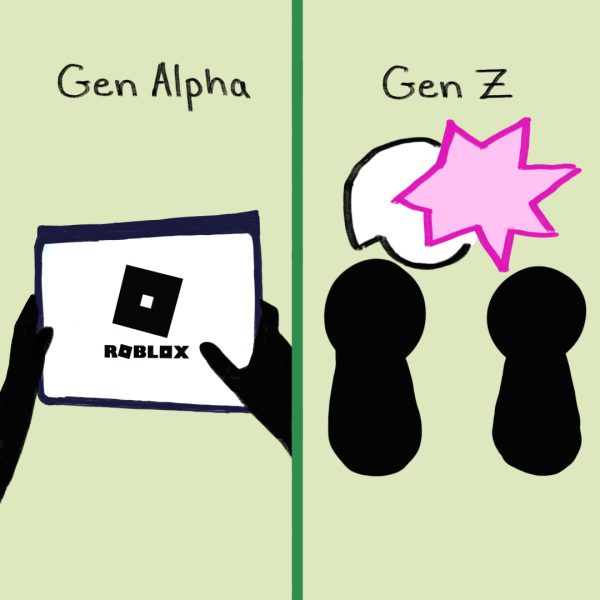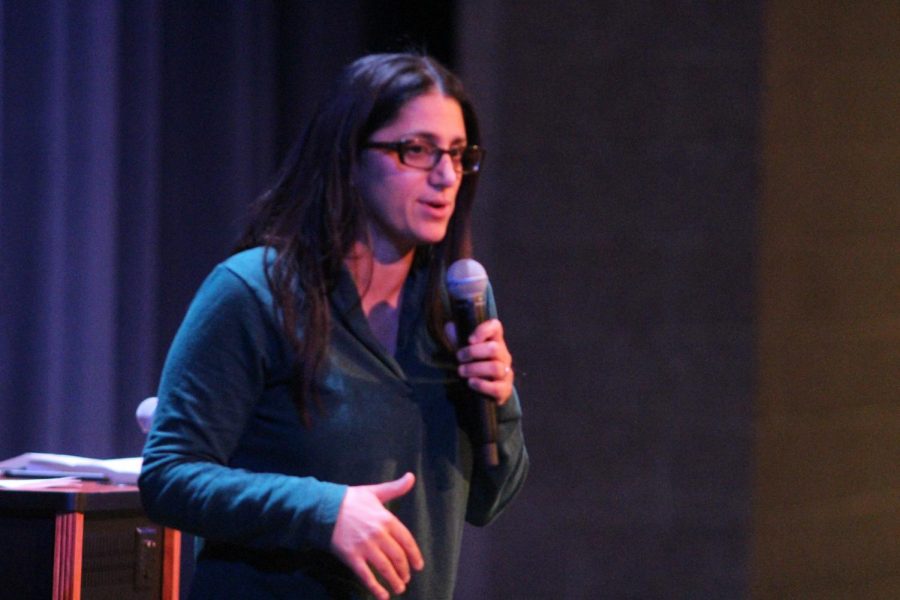Dr. Mona Hanna-Attisha Talks to Students About Flint Water Crisis
Dr. Mona Hanna-Attisha speaks to students about social justice and her book ‘What the Eyes Don’t See’
Dr. Mona Hanna-Attisha speaks to students during fifth hour in the auditorium.
On Monday, April 15, Dr. Mona Hanna-Attisha spoke to students in the Troy School District about her work regarding the Flint Water Crisis and her book, “What the Eyes Don’t See.” Hanna-Attisha spent hours one through three at Athens and then four through six here. Teachers could elect to have their students attend the talks in the auditorium. Hanna-Attisha hoped to instill a sense of empowerment in students that attended her talk.
“I wrote this book for students,” she said. “You guys are all powerful people, and you have amazing voices. There is injustice everywhere, and we need especially young people to use their voices and to recognize that they cannot stay silent.”
Hanna-Attisha rose to national fame after her work linking elevated lead content in children’s blood in Flint got widespread attention. Hanna-Attisha started her work on this issue when her friend from high school informed her about it. Being a pediatrician, Hanna-Attisha works intimately with children in impoverished areas, and stresses that this isn’t an isolated problem.
“Investigations have pointed out that race has a significant role [in this crisis],” she said. “In my book, I talked about how this is not an isolated racial story, but really, it’s because of long-standing racial issues.”
Senior Lauren Alberts was in attendance and felt a connection to Hanna-Attisha’s message.
“It combined the three things I’m most interested in: activism, research and medicine,” Alberts said. “I love that she was a female doctor that created this much change [and] stayed strong with her research even when the government questioned her. It inspires me how she saved so many children and [helped] girls to become powerful doctors.”
Hanna-Attisha’s book is available in the library to be checked out.
Your donation will support the student journalists of Troy High School - MI. Your contribution will allow us to print our work, purchase equipment and cover our annual website hosting costs.




